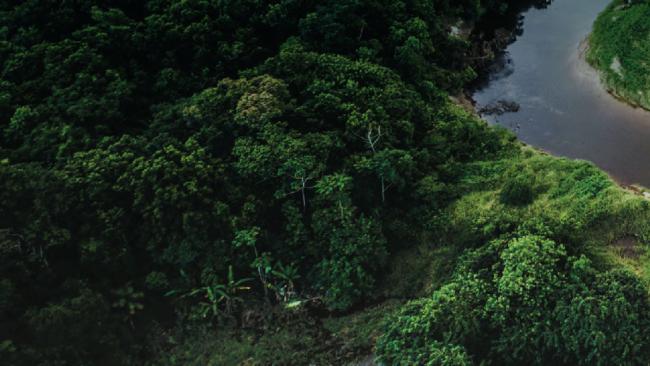Karlstad researcher contributes to landmark Global Tipping Points report for COP30
2025-10-24As world leaders prepare to gather in Belém, Brazil, for COP30, a new scientific assessment paints a stark picture of the planet’s future. The 2025 Global Tipping Points Report warns that the world is rapidly approaching — and in some cases has already crossed — several critical ecological thresholds. Among the contributing scientists is Dr. Avit Bhowmik, climate researcher at Karlstad University, who provided expertise on tipping points in the Amazon Rainforest, one of Earth’s most vital ecosystems.
The report, coordinated by the Global Systems Institute at the University of Exeter, brings together over 100 leading scientists from institutions around the world. It delivers the most comprehensive and up-to-date overview yet of how close humanity is to crossing the Earth’s key climate and ecological tipping points. The findings are intended to guide decision-makers and negotiators at the upcoming COP30 conference.
Warning signs across the planet
According to the report, seven out of nine planetary boundaries have now been transgressed. Vital Earth system processes — such as the Atlantic Meridional Overturning Circulation (AMOC) and warm-water coral reef ecosystems — are showing signs of potential collapse.
The Amazon Rainforest, once the planet’s largest land-based carbon sink, is now emitting more greenhouse gases than it absorbs due to industrial agriculture and frequent wildfires. Researchers warn that this ecosystem may have already passed a critical tipping point.
“The Amazon is the heartbeat of our planet,” says Dr. Avit Bhowmik. “If it stops functioning as a carbon sink, it will accelerate global warming and trigger further destabilization in other Earth systems. What happens in the Amazon affects every one of us.”
Signs of hope: positive tipping points
Despite the alarming trends, the report also highlights positive tipping points that could accelerate global sustainability transitions. Rapid advances in clean energy technologies, particularly solar power — now the cheapest energy source worldwide — are triggering chain reactions in battery innovation and electric mobility.
The authors emphasize that fostering these positive shifts requires local action and empowerment. In the Amazon, for example, Indigenous land management systems and bioregional approaches offer powerful, place-based solutions for restoring balance and supporting both local and global climate goals.
“This report is not just a warning; it’s a call to act on the opportunities that are already emerging,” says Dr. Bhowmik. “We can still choose a path toward regeneration — but it demands collaboration, trust in science, and decisive leadership at every level.”
- Read the full report "Global Tipping Points Report 2025": https://global-tipping-points.org




